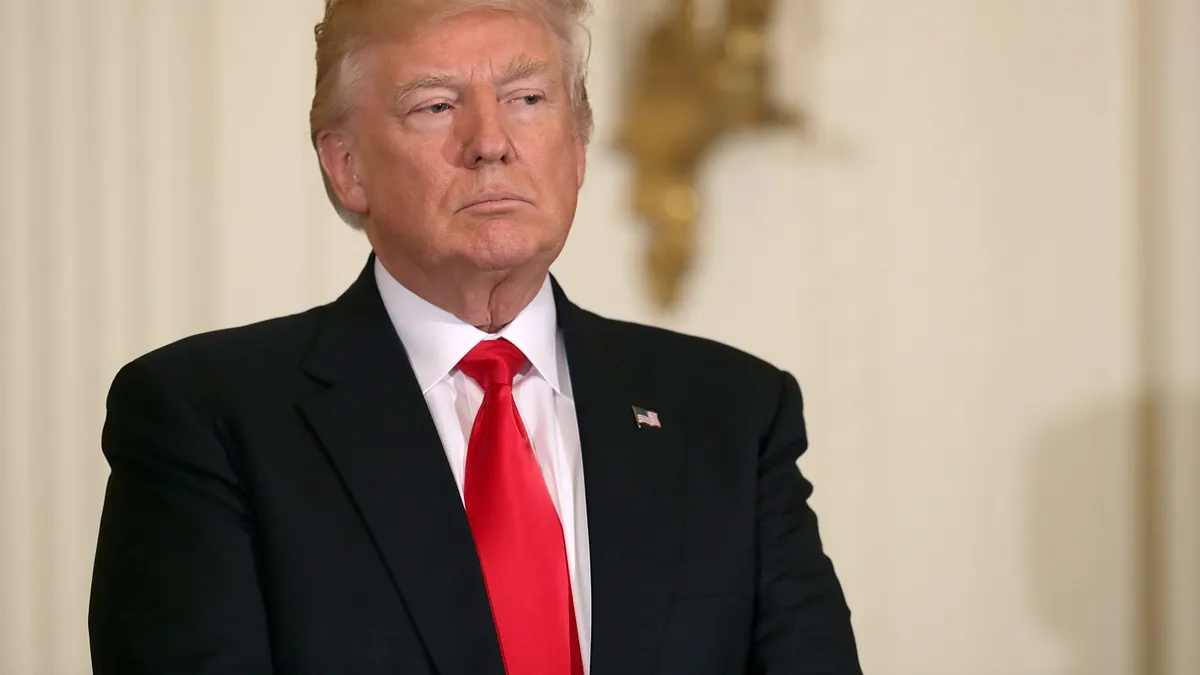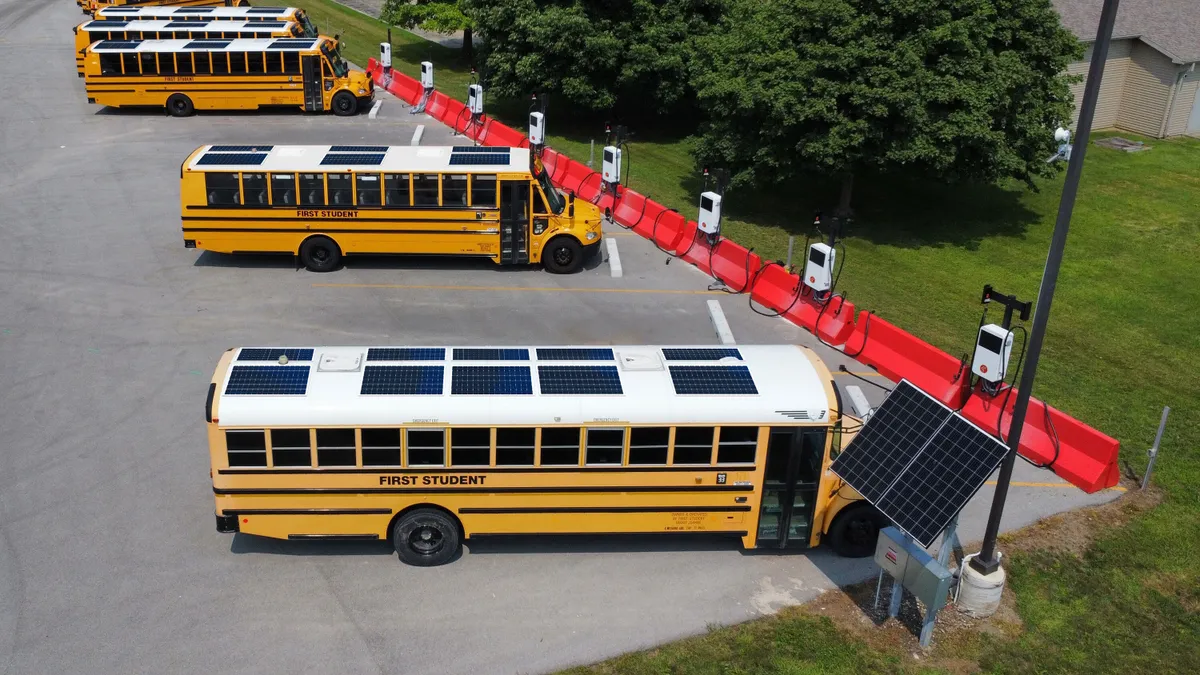As the dust settles on Tuesday’s midterm elections, leaders on both sides of the political aisle have once again raised intentions to invest in the nation’s infrastructure.
Having seen the Republican Party lose control of the U.S. House of Representative but pick up seats in the U.S. Senate, leaders of both parties are already talking up areas where they can work together.
"We will deliver a transformational investment in America’s infrastructure to create more good paying jobs," Nancy Pelosi, D, said during a victory speech. "Rebuilding our roads, bridges, schools, water systems, broadband networks and housing and beyond."
President Donald Trump had announced a $200 billion tax plan to great fanfare this year, with a pledge to invest $50 billion of that in rural areas. But that effort quickly stalled in Congress, to the frustration and disappointment of city and congressional leaders who had seen an opening to get something done.
Del. Eleanor Holmes-Norton, D-DC, said earlier this year that given a funding gap, everyone could pay a penny more at the pump for gas, raising the gas tax through the Penny for Progress Act. "We're just stuck on what my Republican colleagues always get stuck on: you can't build roads without money," she said at the time.
But at a press conference Wednesday to discuss the election results, Trump signaled a willingness to work with Congressional Democrats on an infrastructure package, noting the two sides “have a lot of things in common on infrastructure."
“I really believe that we have the chance to get along very well with the Democrats, and if that’s the case we can do a tremendous amount of legislation and get it approved by both parties,” Trump said.
Similarly, Senate Majority Leader Mitch McConnell, R-KY, said during a press conference on Capitol Hill that there is broad agreement among congressional leaders that something must be done.
“The one issue ... that Leader Nancy Pelosi and I agree with would be a bipartisan agreement on infrastructure … we will see. That will all be discussed," he said.
And in an interview with The Hill, Vice President Mike Pence said Trump would be well advised to push an infrastructure package once the new Congress is sworn in next year.
"This builder that became president would like to rebuild the infrastructure of America," Pence said. "Not only our roads and bridge, and highways and byways, and ports and airports."
On the other side of the aisle, Democrats have tried to make similar moves toward an infrastructure plan. Rep. Frank Pallone, D-NJ, who is set to take over the chairmanship of the House Energy and Commerce Committee, last year released The Leading Infrastructure For Tomorrow’s America Act (LIFT Act), a plan of his own.
"At a time when our nation’s infrastructure is either crumbling or in desperate need of modernization, it’s time we make real and significant investments for the future," Pallone said in a statement at the time. "The LIFT America Act is a blueprint for critical investments in our nation’s infrastructure that will also create jobs, protect public health, and the environment."
"The president and the vice president made it clear they would be willing to work on #infrastructure. @TeamPelosi in her speech, you saw her say right out of the gate that infrastructure was something they looked forward to working on," said @bpallasch.
— Marketplace (@Marketplace) November 7, 2018
Various groups have called for greater infrastructure investment, especially in public transportation and to rebuild roads. The American Public Transportation Association (APTA) warned in a report earlier this year that decades of under-investment in transit has had a negative effect on the economy, resulting in lost jobs and declining business revenue.
There appears to be broad public support, with separate surveys showing that Americans favor more federal public transportation funding, and would be willing to pay more fees and taxes to relieve congestion, which can be caused by infrastructure that struggles to cope with demand.
But there also appears to be disagreement on whether something can get done. In an opinion piece for The Hill, Mohamed El-Erian, chief economic advisor to Allianz, said that modernizing infrastructure could be a job creator and re-position the United States as a world leader.
"Infrastructure is an area that in the past has attracted broad-based support. By potentially enhancing supply and demand at the same time, it is one of the few policy areas that simultaneously benefits both companies and workers," El-Erian wrote. "And it is a promising area if the U.S. is to maintain its strong economic and financial performance."
But others are not so sure. In an email to MarketWatch, Isaac Boltansky and Lukas Davaz of investment bank Compass Point Research & Trading said they doubt hot-button issues such as infrastructure, drug prices and criminal justice reform can “break through the partisan divide.” The pair did not respond to requests for further comment from Smart Cities Dive.
Trump also warned that if Democrats launch investigations into him and his administration, the gears of government would grind to a halt.
If the Democrats think they are going to waste Taxpayer Money investigating us at the House level, then we will likewise be forced to consider investigating them for all of the leaks of Classified Information, and much else, at the Senate level. Two can play that game!
— Donald J. Trump (@realDonaldTrump) November 7, 2018
Perhaps the state level offers some room for comfort for infrastructure advocates. In Michigan, Gov.-elect Gretchen Whitmer, D, ran a campaign in which she promised to "Fix the damn roads," while Wisconsin Gov.-elect Tony Evers, D, blamed opponent and incumbent Gov. Scott Walker, R, for the state’s crumbling infrastructure. Evers even dubbed the many potholes on state highways as “Scott-holes.”
Research from the Brookings Institution found that many candidates at the state level made infrastructure a key issue of their campaigns, regardless of political persuasion. The American Society for Civil Engineers (ASCE) said that showed a growing awareness among gubernatorial candidates that something had to be done.
"Twenty years ago, many people were unaware of the definition of infrastructure, but today it is a hot button item in candidate pitches, which may be due to the country’s poorly rated systems and crumbling infrastructure," ASCE spokeswoman Alexa Lopez wrote.
It was a mixed night for infrastructure-related ballot initiatives at the state level, with voters in Missouri and Colorado among others rejecting proposals to hike taxes to pay for improvements, while California voters rejected a plan to repeal a fuel tax increase that helps fund such work.
Whether something happens or not at the federal level, the nation’s mayors still believe uniting around improving infrastructure is an easier lift than others think. Earlier this year at the U.S. Conference of Mayors’ annual meeting in Boston, Los Angeles Mayor Eric Garcetti said he has been saddened by the holdups.
"In a moment of great political division, I would offer to you that infrastructure is something that unites all of us," Garcetti said at the time.
At the same event, former New Orleans Mayor Mitch Landrieu said cities have led the way on infrastructure investment and could teach their federal counterparts a lesson on how to make progress.
"If Congress and the President want to know if investing in infrastructure works, they should ask the mayors of America because we have a great story to tell," he said.




















